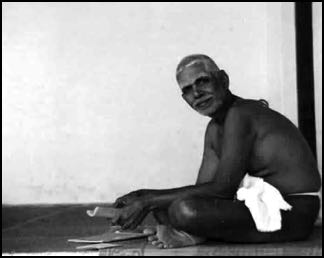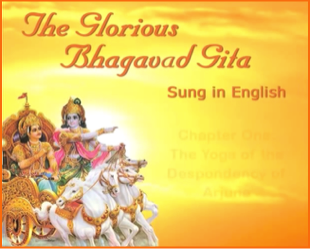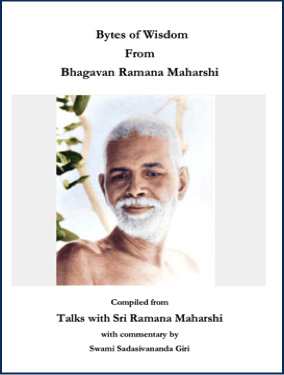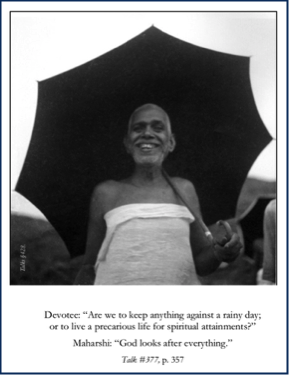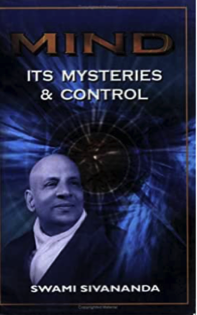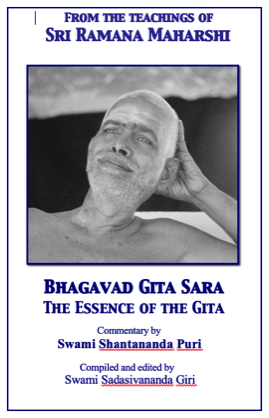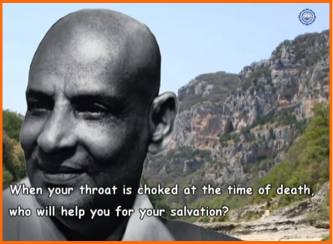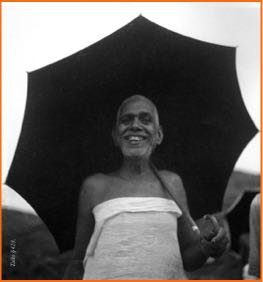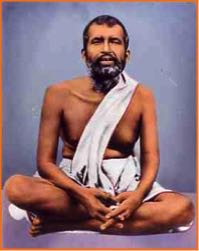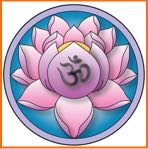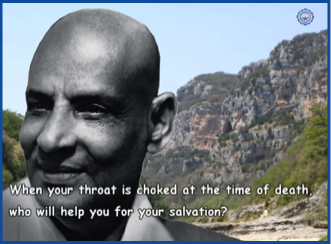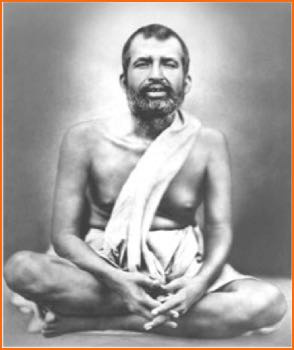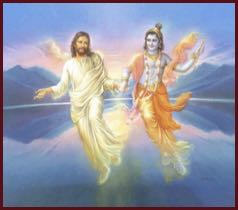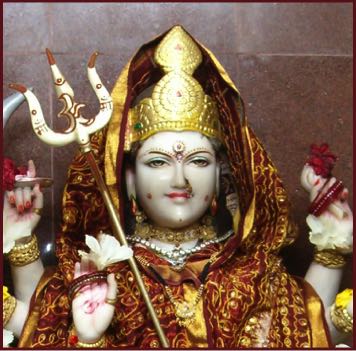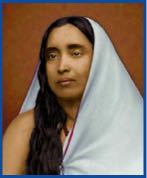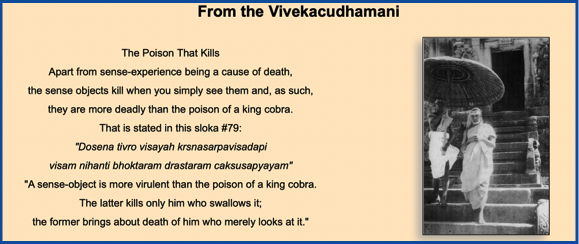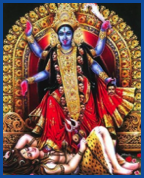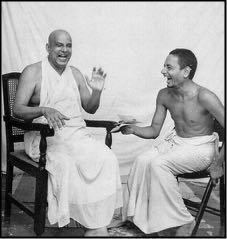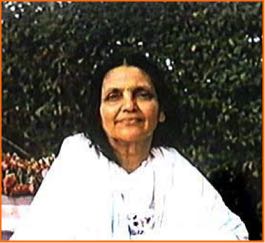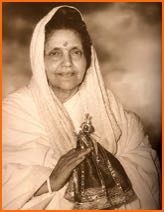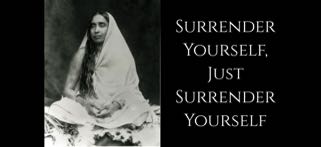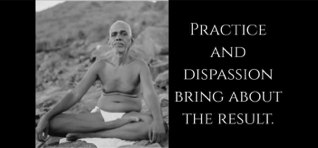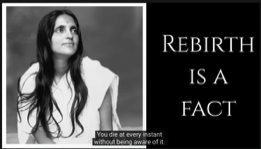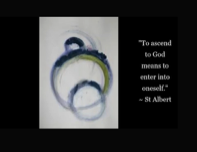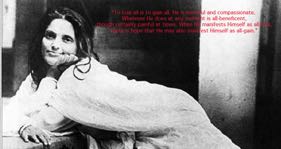



Spiritual-Teaching.org


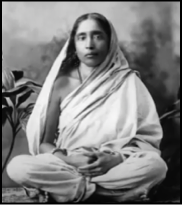
Quick Links to Favorite Website Contents
Favorite Website Audios
This guided meditation,
using the traditional method
of watching the breath,
also includes the practice of
linking the movement of the
breath with the sacred
mantra OM.
"Gentle Hatha Yoga"
A unique 1 hour session of
hatha yoga, guided by one
of the foremost instructors
in the Hawaiian Islands.
"God Rocking the Cradle"
Part 1 of 3. The making of an
Himalayan Saint,
Swami Shantananda Puri
"An Antidote for Sorrow"
Swami Shantananda discusses
how to train the mind to
experience a measure of peace
within meditation, free from
unwanted thoughts.
The Core teaching of
Sri Ramana Maharshi
This talk discusses the primary teaching of "Who Am I" dictated in the form of questions and answers between Bhagavan and a direct disciple.
It reveals how Bhagavan combined the traditional approach of knowledge and devotion (Jnana and Bhakti) to culminate in a direct perception of God within.
This discussion was given at a university class of religious study.


The Hidden Gospel: Decoding the Spiritual Message of the Aramaic Jesus by Neil Douglas-Klotz
As Yeshua says in Matthew 6:21 "Where your treasure is, your heart, courage, and passion will be also" can be seen through a more open reading from the Aramaic as:
What you hold onto in form will also be fixed in vision. The energy you contain in an individual effect or possession
Will also be bound in the field of vibrating cause. What you release from form will be available for vision.
The energy you allow to grow beyond your own creation. Cutting the cord that keeps you and it dependent
Will liberate both into a larger cosmos of unlimited creation.
Sit or stand comfortably for a few moments. Begin to breathe, feeling a connection through your whole body from underneath to above. Imagine that this straight line of breath supports you from underneath as well as pulls you from above. Imagine this straight line to be the line of your life's story, from past to future. Or imagine it as your connection to Alaha, an expression of your unique purpose in life. Affirm this straight line of your life as something that is whole and complete for now and will also continue to unfold.
Then breathe a few more breaths while you bring your hands and arms slowly together in front of you to form a circle. Breathe with the circle of your existence: those with whom you feel connected as friends, family members, or coworkers. Allow the feeling of the circle to expand to include a connection with the whole human family and with all of nature. Allow the circle to become as wide as you can. Imagine it as your connection to all that vibrates, as well as to the limitless reservoir of vision and power that surrounds you.
Finally, breathe for some moments with the feeling of the two worlds interpenetrating each other, in this moment. Identify with a sense of “I” that allows you to hold both, the individual and the cosmic.
Douglas-Klotz, Neil. The Hidden Gospel: Decoding the Spiritual Message of the Aramaic Jesus, Chapter 7: pp.104-105.
Experience "Shemaya (Aramaic rendering of "Heaven") which the
Lord Yeshua referred to as "Queendom":


"God Rocking the Cradle"
Part 3 of 3. The making of an
Himalayan Saint,
Swami Shantananda Puri
"God Rocking the Cradle"
Part 2 of 3. The making of an
Himalayan Saint,
Swami Shantananda Puri
Bhagavan's first Nobel Truth – Right Awareness - Talk #27
“The ebbs and flows of the consciousness, which constant practice renders increasingly perceptible to the meditator, gradually loosen the consciousness from the body and end by separating them in samadhi, so that the sadhaka (spiritual practitioner) is enabled to perceive the consciousness alone and pure. This is the Self, God the Absolute.”
A serious practitioner might surely reflect on how one can possibly become receptive to Grace. For even the Upanishads declare that Grace reveals Itself only to whom It pleases. Grace acts without provocation. It is for this reason that one of the Names of the Divine Mother is “She who is an ocean of compassion without reason”. We do not, and many Saints agree that we cannot, invoke the Grace of God by human effort.
But acts of prayer transcend the realm of human effort, for prayers are in truth, a mutual undertaking between the human and the Divine. Prayer, and its deepest counterpart, meditation, have been defined thus: “Prayer is when we talk and God listens. Meditation is when God talks and we listen.” Once we accept this Truth, we must recognize the necessity of refining our awareness towards increasingly perceiving what God is trying to tell us. Bhagavan Ramana, in the above quote, is also trying to tell us what we must achieve. This first Nobel Truth of Bhagavan's way, is to become aware of mercurial ebbs and flows of our mind, the state of which constitutes our consciousness. By constant practice to sit out the currents of the mind within meditation, we strive to perceive That which stirs the depths of our hearts and souls - Absolute God. When we touch the depths of the Ocean of Compassion within meditation, we awaken to its embrace.
If there can be a final word on the need for us to become still within meditation, and perceive that transforming Hand of God in samadhi, let Bhagavan have the final word:
“Unless Thou extendest Thy hand of grace in mercy and embrace me,
I am lost, O Arunachala.” Marital Garland of Letters, verse 51
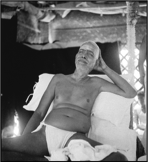
Happily accepting the gift of God
in the form of illness
16th December, 1936 - Talk #295
M.: “Your nature is happiness. You say that is not apparent. See what obstructs you from your true being. It is pointed out to you that the obstruction is the wrong identity. Eliminate the error. The patient must himself take the medicine prescribed by the doctor in order that he may be cured of his illness.
D.: “The patient is too weak to help himself and places himself unconditionally in the hands of the doctor.
M.: “The doctor must be given a free hand and the patient must only remain quiet without saying anything. Similarly keep quiet. That is effortlessness.”
It has been said that illness is one of the most potent gifts of God's grace. Such grace is a veritable medicine for the soul. It is also a known fact that those to whom illness has laid prostrate will be the last to admit it as a gift of love. Bhagavan's guidance is simple and straightforward, whether in the realm of a Guru or a Doctor. The medicine that cures our wrong perception of life can also invoke true happiness, if we would only give up trying to modify the prescription with our own muddled up habits. To give the physician a free hand can be a bitter pill, if we do not keep quiet and let it be.
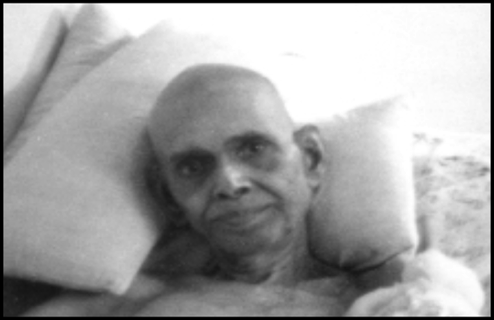



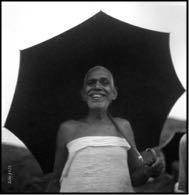
Be Still, and Know that I Am God!
An excerpt from
"Practical Sadhana - The Teachings of Sri Ramana Maharshi"
by Swami Sadasivananda
The scriptures of both East and West verify the Eternal Truth within such statements as: “Be still, and know that I am God” Psalm 46, Holy Bible, and “Unify the meaning of Thou and That within meditative silence, and experience peace of the form of moksha (liberation).” Vivekachudamani, verse 368.
The process of verification is foolproof if practiced by a step-by-step process of experience within a heightened mind transformed by abhyasa (repeated spiritual practice). All mystical scriptures agree that we, as incarnated jivas (souls), though made in the image and likeness of God, have come under the spell of ignorance of our heritage of Divinity. The sole reason for this, though simple, has confounded the vast majority of mankind since the birth of creation. We are, as Sri Anandamayi Ma proclaimed with childlike innocence, “Born in the Kingdom of forgetfulness – therefore we forget!”
But for each and every calamity befalling mortals and Gods, there is a remedy. When Lord Rama sojourned on earth, he once asked his guru Sri Vasistha why it was that when they were together his knowledge and experience of the Self was undiminished, but when they were apart forgetfulness obstructed the vision of his divinity? Sri Vasisthadeva simply, but with great profundity, declared that the reason for forgetfulness was:
“Lack of abhyasa (repeated spiritual practice).”
Bhagavan Sri Ramana Maharshi echoed the same Truth when answering a devotee's comment that:
“Bhagavan's Grace is needed in order that meditation (and thus remembrance) should become effortless.”
Bhagavan replied: “Practice is necessary, there is Grace.” Guru Ramana, S.S. Cohen, Sri Ramanashramam 2006, p. 76.
Though God and His Truths never change, we seem to have wandered astray, being led by the whimsical desires of infantile habits. Assuredly, this child by adoption (our ego) is habitually perverse and dangerously errant, and deserves disownment. In fact, our very liberation demands it! A great scholar of Vedanta, and devotee of Sri Ramakrishna, Swami Yatiswarananda, has stated this condition with crystal clarity:
“We all know that the ego is perverse and how it is constantly changing its center of gravity. It is now identified with outside things, next moment with the body, then with the senses or the mind. It is mad and runs the risk of tumbling down any moment. How at times it becomes too much one-pointed, centered on itself! We forget that our individual consciousness is part of an infinite consciousness; we forget that the welfare of our fellow beings is inseparable from our own; we become egocentric, selfish and mean - a danger to ourselves, to our family and society.” Meditation and Spiritual Life, Swami Yatiswarananda, Ramakrishna Math Bangalore 2001, p. 241.
The complete eradication of this habit, and the state of perfection that we must strive for is exemplified completely with every detail of the life of Sri Ramana Maharshi. He has made the mold, now we must cast the image in his likeness.
In our own era the winds of change blow with gale force intensity, they toss the externalized mind about like a boat on a stormy sea. With even greater force our heedless impatience impels us to seek the easy road to Realization, a way that avoids and even denies the need for a path that skillfully trains one to overcome the mind by turning within.
Bhagavan Ramana emphasized this clearly when He stated:
“How to transcend the mind?” The Master answers: “Mind is by nature restless. Begin liberating it from restlessness: give it peace; make it free from distractions; train it to look inward; make this a habit. This is done by ignoring the external world and removing all obstacles to peace of mind.” Reflections on Talks with Sri Ramana Maharshi, S.S. Cohen, Sri Ramanashramam 2006, Talk 26 p. 129.
In the Vivekachudamani, by Sri Adi Sankara, we find a tried and proven 'road map' guiding us through the seemingly monumental task of “ignoring the external world and removing all obstacles to peace of mind.”
In verse 368 the 'goal supreme' is revealed through a gradual process beginning with what many Saints and Sages have declared to be mankind's 'root of all evil'- the tongue!” The following translation and commentary, given by Sri Candrasekhara Bharati of Sringiri, also sheds enormous light on the words of Sri Ramakrishna when he was asked to define “religion.”
The Paramahansa's answer was: “The union (yoga) between the mind and speech.”
The translation and commentary of Sri Candrasekhara Bharati follows:
“The first means to yoga is control of speech, then, not acquiring more than what is barely necessary, absence of desire, freedom from activity and ever living by oneself (in secluded places).”
The explanatory commentary continues:
“The first means to yoga which is restraint of all modifications is silence. For, by speech all forms of mental modificational activity grow… It is said that the first step to yoga is restraint of speech. The authority for this is the Kathopanishad which says: “Let the wise man restrain the speech in the mind; let that be restrained in the (vyasti - intellect) buddhi; let that buddhi be restrained in the mahat (samasti- intuitional) buddhi; let that be restrained in the atman which is the nature of shanti – immovable tranquil peace.”
The meaning is conveyed further as: “Control the speech in the mind; control that in the intellect; control the intellect in the witness of the intellect; merging that again in the infinite Purnatman, attain supreme peace… Give up all extraneous speech activity; in the beginning remain purely in the region of the mind. When silence becomes as strong as in the case of animals, restrain the mind in its twin aspects of determination and doubt in the buddhi, characterized only by firm conviction. Then the mind will become firm and silent, unable to act like the carpenter bereft of his tools.
That silent intellect should be merged in the caitanya (consciousness) limited by the buddhi of intellect. Destroy the upadhi (Upadhi – a term which means 'condition.') Due to this condition or upadhi an unlimited thing appears to be limited of the intellect and restrain it in the pure cognition which is the witness – consciousness. Realize the meaning of 'Thou' (twam) after careful analysis. Unify the meaning of Thou and That within meditation, and experience peace of the form of moksha (liberation).
Admittedly, this guidance is scholarly. But, nonetheless it is decisively understandable by one who follows its thread by the means of practice. The attempt of this commentary is to guide the aspirant through one of the most complex modes of heightening the mind. The culmination of this purified perception of the mind is not merely intellectual, but altogether experiential. The fruit of such practice is experiential understanding, or vijnana Vedanta as cited in the Kaivalya Upanishad– the realization of Truth through special meditative perception resulting in revelation.
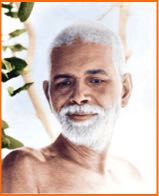
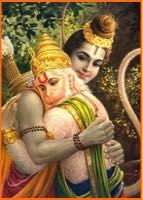

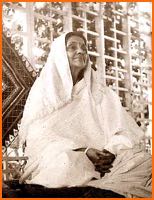
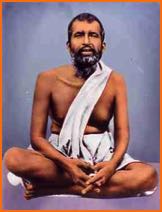




O Birther! Father-Mother of the Cosmos,
you create all that moves in light.
O Thou! The Breathing Life of all,
Creator of the Shimmering Sound that touches us.
Respiration of all worlds,
we hear you breathing—in and out—in silence.
Source of Sound: in the roar and the whisper,
in the breeze and the whirlwind, we hear your Name.
Radiant One: You shine within us,
Douglas-Klotz, Neil. Prayers of the Cosmos (p. 12). HarperCollins. Kindle Edition.
Clearing Space for the Name to Live - Nethqadash shmakh
(KJV version: Hallowed be thy name)
Focus your light within us—make it useful: as the rays of a beacon show the way.
Help us breathe one holy breath feeling only you — this creates a shrine inside, in wholeness.
Help us let go, clear the space inside of busy forgetfulness: so the Name comes to live.
Your name, your sound can move us if we tune our hearts as instruments for its tone.
Hear the one Sound that created all others, in this way the Name is hallowed in silence.
In peace the Name resides: a “room of one’s own,” a holy of holies open, giving light, to all.
We all look elsewhere for this light— it draws us out of ourselves — but the Name always lives within.
Focus your light within us—make it useful!
Douglas-Klotz, Neil. Prayers of the Cosmos (pp. 16-17). HarperCollins. Kindle Edition.
Textual Notes - In the second line of the prayer, the root shm—the divine name, light, sound, experience—returns in a more specific form. In the first line, shem was spread throughout the universe; it was part of the underlying Unity in which everything lives. Here we affirm that the name will become qadash, “holy” (from which the Hebrew word kosher, “kosher,” is drawn). In Aramaic, one makes a thing holy by setting it apart, separating it for a specific purpose. Because this Aramaic construct occurs equally inside as well as outside of us, we might say that when we separate something, hold it inviolate, we create for it a holy place within. The roots of nethqadash also evoke the images of clearing or sweeping and of preparing the ground for an important plant. In one of the most beautiful pictures presented by the Aramaic, the roots show a person bending his or her head over a special place where seeds are sown, indicating also that one bends over the heart and plants devotion and perseverance at the same time. The inner shrine by which God’s name is hallowed can be developed only through letting go, releasing some of the clutter inside that keeps us too busy to be silent and receptive to the “still, small voice.” The prayer also leads us to consider our “feeling heart,” the place that mystics of all paths have called the inner temple. Jesus recommended going to this “heart-shrine” (one of the meanings of “enter into thy closet”—Matt. 6:6) whenever we pray. In another setting, Virginia Woolf called this “a room of one’s own.” When this inner shrine is established, it becomes possible to be, in the words of Jesus, “all-embracing” (usually translated as “perfect”) even as our Creator-source is all-embracing (Matt. 5:48). In Aramaic, the prayer always directs us in a practical fashion. To make the experience of Abwoon useful we need to create a place for this Oneness to live inside. Then the light of shem—the clarity or intelligence that arises in ultimate peace—becomes usable on an everyday basis, like light in a lamp.
Douglas-Klotz, Neil. Prayers of the Cosmos (pp. 17-18). HarperCollins. Kindle Edition.

Swami Muktananda of Ananda Ashram speaking on the
"Significance of Sivoham"



Sivoham Part 1 of 4
Sivoham Part 4 of 4
Sivoham Part 2 of 4
Sivoham Part 3 of 4
"Not Pained by Pain"
with breath meditation
by
Thanissaro Bhikkhu
Love Embracing the Beloved
“All things are possible to him who believes,
they are less difficult to him who hopes,
they are easier to him who loves,
and still more easy to him who practices
and perseveres in these three virtues...
Believe me,
count as lost each day you have not used in loving God.”
Brother Lawrence
“Rejoice evermore. Pray without ceasing.
In everything give thanks: for this is the will of
God in Christ Jesus concerning you.”
1 Thessalonians 5:16-18
This article contains the Spiritual Maxims of one Nicholas Herman of Lorraine, a lowly born and unlearned man; who, after having been a soldier and a footman, was admitted a lay brother among the Carmelites Deschausses (bare-footed) at Paris in 1666, where he served in the kitchen of the community. He was afterwards known by the name of Brother Lawrence. He died in February 1691, at the advanced age of eighty, after a life the true saintliness of which can be well realized from his words of guidance.
“Herein you will not find set out a devotion which is merely speculative, or which can only be practiced in a cloister. No, there is an obligation laid on every man to worship God and to love Him, and we cannot carry out this solemn duty as we ought, unless our heart is knit in love to God, and our communion is so close as to constrain us to run to Him at every moment, just like little children, who cannot stand upright without their mother’s arms of love.”
Not only did Brother Lawrence perceive God as present in his soul by faith, but also in all events of life, whensoever they befell, instantly he could arise and seek the Presence of God. Yet he confessed that it was hard at first, that many a time he had been unmindful of this practice, but that, after humble prayer and confession to God of his failure, he had betaken himself to it again without trouble.
Of his life within God, his failures and attainments, he left a legacy of direction for those who would likewise seek “The Way, the Truth, and the Life in the Presence of God.” Thus his declaration most central to this undertaking was: “That the Presence of God can be reached rather by the heart and by love than by understanding. In the way of God thoughts count for little, love is everything.”
His one method of going to God and abiding in His Presence was to do all for the love of Him.
When we enter upon spiritual life, we ought to consider thoroughly what we are, probing to the very depth. Though creatures made for God, we are prone to all manner of maladies and subject to countless infirmities, which distress us and impair the soul’s health, rendering us wavering and unstable in our humors and dispositions. We must believe steadfastly, never once doubting, that all such is from God and for our good; that it is God’s will to visit us therein.
“Good when He gives, supremely good; Nor less when He denies. Afflictions, from His sovereign hand, are blessings in disguise.”
Brother Lawrence entreats us that we: “Must do all things thoughtfully and soberly, without impetuosity or precipitancy, with denotes a mind undisciplined. We must go about our labors quietly, calmly, and lovingly, entreating Him to prosper the works of our hands; thus keeping heart and mind fixed on God.
“That useless thoughts spoil all: that the mischief began there; but that we ought to be diligent to reject them as soon as we perceived their impertinence to the matter at hand, or to our salvation; and return to our communion with God. When we are busied, as well as while meditating on spiritual things, even in our time of set devotion, whilst our voice is rising in prayer, we ought to cease for one brief moment, as often as we can, to worship God in the depths of our being, to taste Him though it be in passing, to touch Him though as it were by stealth. Since you cannot but know that God is with you in all you undertake, that He is at the very depth and center of your soul, why should you not thus pause an instant from time to time in your outward business, and even in the act of prayer, to worship Him with your soul, to praise Him, to entreat His aid, to offer Him the service of your heart, and give Him thanks for all His loving-kindness and tender-mercies?”
The Spiritual Maxims of Brother Lawrence systematically guides us through the means for attaining unto the Presence of God:
1. The first is a great purity of life; in guarding ourselves with care lest we should do or say or think on anything, which might be displeasing to God.
2. Second is a great faithfulness in the practice of His Presence, and in keeping the soul’s gaze fixed on God in faith, calmly, humbly, lovingly, without allowing an entrance to anxious cares and disquietude.
3. Make it your study, before taking up any task to look to God, be it only for a moment, as also when you are engaged thereon, and lastly when you have performed the same. And forasmuch as without time and patience this practice cannot be attained, be not disheartened at your many falls; truly this habit can only be formed with difficulty, yet when it is so formed, how great will be your joy therein.
4. Let us mark well, however, that this intercourse with God is held in the depth of our being; there it is that the soul speaks to God, heart to heart, and over the soul thus holding converse there steals a great and profound peace. All that passes without concerns the soul no more than a fire of straw, which the more it flares, the sooner burns itself out; and rarely indeed do the cares of the world ever intrude to trouble the peace that is within.
5. It is here therefore, in the heart, that we ought to strive to make a habit of this gaze on God; but that which is needful to bring the heart to this obedience we must do, as has been said, quite simply, without strain or study.
6. When the mind, for lack of discipline when first engaged in this practice, has contracted bad habits of wandering and dissipation, such habits are difficult to overcome, and commonly draw us, even against our will, to things of earth. One remedy for this is to humbly offer prayer to God. A multiplicity of words in prayer is not advised; discursive forms of prayer are often an occasion for wandering.
7. One way to recall easily the mind in time of prayer, and to preserve it more in rest, is not to let it wander too far at other times.
8. This practice of the Presence of God is somewhat hard at the outset, yet, pursued faithfully, it works imperceptibly within the soul most marvelous effects; it draws down God’s grace abundantly, and leads the soul insensibly to the ever-present vision of God, loving and beloved, which is the most spiritual and most real, the most free and most life-giving manner of prayer.
9. Remember that to attain this state, we must control the senses, inasmuch as no soul, which takes delight in earthly things above those in their Creator, can find full joy in the Presence of God; to be with Him we must leave behind the creature.
Thus, Brother Lawrence compassionately entreats us to ‘seek and find’, to ‘knock and the door will be opened unto us’, for his final guidance is:
“All things are possible to him who believes, they are less difficult to him who hopes, they are easier to him who loves,
and still more easy to him who practices and perseveres in these three virtues...
Believe me, count as lost each day you have not used in loving God.”
Just prior to the final moment when this lover of the Beloved passed away in the embrace of His Lord, a brother asked him if he was at ease and what his mind was busied with? He said: “I am doing what I shall do, through all eternity – blessing God, praising God, adoring God, giving him the love of my whole heart. It is our one business, my brethren, to worship Him and love Him, without thought of anything else.”
The brethren then begged him to entreat of God for them to possess the true spirit of prayer. Brother Lawrence, without pain or struggle, without losing in the slightest the use of any of his faculties, in perfect peace and calm replied:
“There was need of labor on my part also to make myself worthy of such a gift.”
These were his last words.
Brother Lawrence "The Practice of the Presence of God"
Question: Celibacy is often seen in the modern West as an outmoded, old-fashioned practice. It is often viewed as repressive, life-denying—even antithetical to what spiritual practice is ultimately all about. Many spiritual authorities in the West are now teaching that to realize our full potential as human beings, we must embrace, rather than in any way avoid or repress, our sexuality. These views stand in stark contrast to what the great traditions have always taught. What do you think about this?
Swamiji: I don’t agree with the general attitude that has just been expressed. They have failed to grasp the place of brahmacharya in the spiritual life. It is not outmoded; it is not at all old-fashioned, and it is not repressive or life-denying. On the contrary, it is used as a plank for everlasting life, endless life. Their view of life seems to be a very, very limited and narrow view of life. This is not the only life there is. When you come to have a little glimpse or idea of what real life is, then you will just stand amazed. This present life as such is meaningless. It is a petty trifle, a nothing, if not understood in terms of its being a take-off runway for catapulting into that greater life.
This life is a means to that great, glorious, grand end and aim of human existence which is to enter into a life that is the life of God, that is one with God’s life, the Kingdom of Heaven. That is the whole purpose of human existence. Human life has been given to us as a passageway to Divinity, as a passageway to everlasting life.
No person with a little religious knowledge and awareness or a spiritual view will ever deny the validity of brahmacharya. It is something scientific and a scientific thing never gets outmoded or old-fashioned. Brahmacharya is neither avoiding sexuality nor repressing sexuality. It is giving the go-by to sexuality so that the potential and the power of the sexual process can now be used for something so wonderful that sex pales into insignificance in contrast.So brahmacharya is neither repressing sexuality nor avoiding sexuality. It is just bypassing sexuality—making use of this sexual potential for something ten times, a hundred times greater. Therefore, the question of repression and suppression is a misnomer. It is due to a lack of proper understanding of what the real spiritual quest is. If it is understood, then these terms will not be used. We are not just human beings; we are more than human beings. Our human status is only a pale reflection of what we really are. The only reason our human status acquires some meaning and significance is because if it is properly utilised, it can raise us up and take us into that which is our own, bring us into the Kingdom—to which we have a birthright.
If you want to understand the practice of celibacy through an analogy that is within the thought forms of today, consider an athlete whose great ambition is to win a gold medal at the Olympics. He will willingly put himself into the hands of a trainer, and if the trainer says, “No more late night revelry, no more sex, no more junk food, no more alcohol,” the athlete readily agrees. He says: “I’ll agree to this and more also if you want it.” Why? Because he wants the gold medal. And no one raises an eyebrow, no one is outraged. Why? Because the gold medal justifies all these so-called “inhibitions.” You cannot say that he’ s doing violence to or repressing himself, because he is not looking at it that way. He is willing to do anything that the trainer demands of him. It is not imposed upon him by other people. We understand why he is doing it and we accept it.
However, in one way the idea in the West that brahmacharya is suppression is not entirely off the mark. If one represses or suppresses some inherent natural force or faculty, it can bring about undesirable changes in the personality. If brahmacharya is forced upon an individual against the individual’s inclination and will, abnormal conditions naturally may result, because the person is being compelled to do something that deep within himself or herself the person does not want to do—compelled by others, by social restraint or by taking up vows that he or she ought not to have taken before having well considered exactly what it implied.
But if an intelligent person, having deeply pondered the whole basis of life, says: “When I want to achieve something great, something mighty, I cannot afford to deplete the energies that I have. The more I conserve, the more I can divert into that achievement and the greater the chance of succeeding.” So thinking and having understood the rationale of it and fully appreciating the ultimate achievement it would lead to, if he or she voluntarily, willingly and with great enthusiasm undertakes celibacy, where comes the question of suppression?
In October, 1997, His Holiness Sri Swami Chidananda—who in 1963 succeeded His Holiness Sri Swami Sivananda Maharaj as president of the Divine Life Society—was interviewed by a leading American spiritual magazine on the question of the role of celibacy in the spiritual life. This very powerful excerpt from the entire interview is a presentation of one of the questions asked and the answer given. It provides the sincere spiritual seeker with rare insights, not only into the role of celibacy in the spiritual life, but into the goal of life itself, enlightenment.
The Role of Celibacy in Spiritual Life
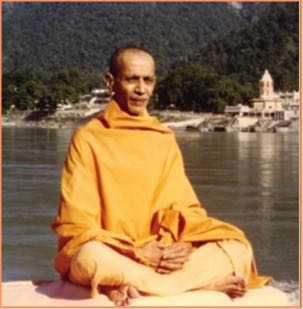
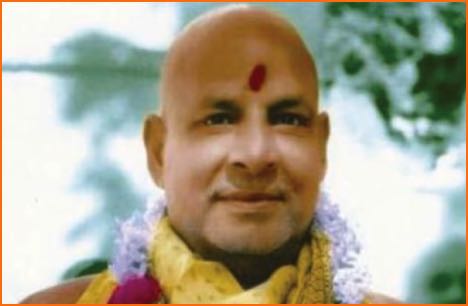
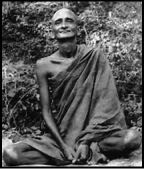
Passionless Look of Tenderness - Enlightenment and Love
Two Divinely Inspiring Talks on the Goal of combining both Jnana
and Bhakti to get a glimpse of the Experience of having
Sri Ramana Maharshi look at You!

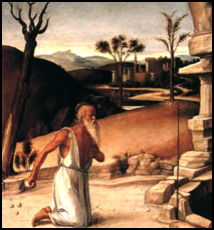

Chapters on Prayer
Prayer is the offshoot of meekness and the absence of anger.
Prayer is the fruit of joy and gratitude.
Prayer is the defense against sadness and discouragement.
Those who accumulate pains and grudges in their heart and then imagine that they pray,
are like people who pour water into a cracked vase.
If you think you can heal someone else, be careful not to become incurable yourself
and so give a death blow to your prayer.
If you refrain from anger, you will find mercy.
So, be careful not to become presumptuous, and you will be among those who pray.
What is good but God alone (cf. Mark 10:18)?
Therefore let us entrust ourselves to Him in all that concerns us, and all will be well for us.
The One who is good is always and the giver of good things (cf. Jas 1:17).
When you find more joy in fulfilling your service of prayer than anything else,
then you will truly have found prayer.
Prayer without distraction is the mind's supreme state.
Prayer is the ascent of the mind to God.*
__________________
*(Evagrius Ponticus, Chapters on Prayer, 2012, Sr. Dominique Pascale-Nau, Rome)
Refrain: Rejoice, O Unwedded Bride!
O Virgin pure, immaculate/ O Lady Theotokos
O Virgin Mother, Queen of all/ and fleece which is all dewy
More radiant than the rays of sun/ and higher than the heavens
Delight of virgin choruses/ superior to Angels.
Much brighter than the firmament/ and purer than the sun's light
More holy than the multitude/ of all the heav'nly armies.
Rejoice, O Unwedded Bride!
O Ever Virgin Mary/ of all the world, the Lady
O bride all pure, immaculate/ O Lady Panagia
O Mary bride and Queen of all/ our cause of jubilation
Majestic maiden, Queen of all/ O our most holy Mother
More hon'rable than Cherubim/ beyond compare more glorious
than immaterial Seraphim/ and greater than angelic thrones.
Rejoice, O Unwedded Bride!
Rejoice, O song of Cherubim/ Rejoice, O hymn of angels
Rejoice, O ode of Seraphim/ the joy of the archangels
Rejoice, O peace and happiness/ the harbor of salvation
O sacred chamber of the Word/ flow'r of incorruption
Rejoice, delightful paradise/ of blessed life eternal
Rejoice, O wood and tree of life/ the fount of immortality.
Rejoice, O Unwedded Bride!
I supplicate you, Lady/ now do I call upon you
And I beseech you, Queen of all/ I beg of you your favor
Majestic maiden, spotless one/ O Lady Panagia
I call upon you fervently/ O sacred, hallowed temple
Assist me and deliver me/ protect me from the enemy
And make me an inheritor/ of blessed life eternal.
Rejoice, O Unwedded Bride!
“Rejoice, O peace and happiness/ the harbor of salvation,
O sacred chamber of the Word, flower of incorruption.
Assist me and deliver me, protect me from the enemy
And make me an inheritor of blessed life eternal.”
22nd March, 1937. Talk #377. p.356
A middle-aged Andhra visitor asks: A man is said to be divine. Why then does he have regrets?
Maharshi: Divinity refers to the essential nature. The regrets are of Prakriti.
Devotee: How is one to overcome regrets? Maharshi.: By realizing the Divinity in him.
D.: How? M.: By practice.
D.: What kind of practice? M.: Meditation.
D.: Mind is not steady while meditating. M.: It will be all right by practice.
D.: How is the mind to be steadied? M.: By strengthening it.
D.: How to strengthen it? M.: It grows strong by satsanga (the company of the wise).
D.: Shall we add prayers, etc.?
M.: Yes.
No matter how many times Sri Ramana Maharshi stressed the need for meditation, there will always be those who declare that he never told people to meditate. But these same people are not to be condemned; for they suffer from the same contagious dilemma we all suffer from - human nature. May I site two scriptural sources for this seemingly outrageous statement? First is from the Bhagavatam, in the Udhaav Parva, where one of the mind-born sons of Brahma declares that death is pramada, literally defined as “the willful indifference to the consequences of ignoring God.” Thus, Bhagavan urges for the Divine to be realized within, and the means he stressed in the above quote was meditation (universally said to be the best way not only to avoid ignoring God, but to be acutely aware of His Presence). The second, and possibly more to the point, is Terry Pratchett’s fourth Discworld Novel Mort. Here Mort inquires of Death why people don’t see Him. Death, with a definably wistful air of sadness responds, “Though they all know that I am part of the arrangement, they refuse to accept what they don’t want to see.”
By Divine Grace, Sri Ramana Maharshi and so many Saints and Sages, are also parts of the arrangement. But they are not afflicted by the contagion of humanity’s wants and dislikes. Bhagavan especially did not preach, nor did he seem to express sadness over the “human
condition”. Nonetheless, he wept for his Lord Arunachala, he wept over personal human tragedy, he wept to the point of exhaustion while reading about the dedicated practice and sacrifice of the Saints. And having assumed our human form, he definitely did urge ‘those who had ears to hear’ to find and merge with the source of peace and love and the Divine “small still voice within”. He taught the ‘way that makes us perfect’ within the tradition to which he took birth. Those who have ‘ears to hear’ understand his guidance when he says that it is:
'Practice (Abhyasa: repeated spiritual practice) that makes us perfect.’
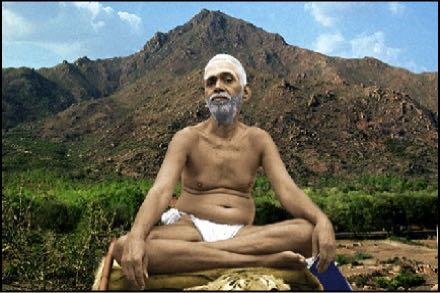
To the Sufis, basking in the presence of God in the serenity of the present moment was more than enough reason to find joy in this existence, in the here and now, and more enriching than waiting for the rewards of a heavenly afterlife. This is what Rumi meant it his poetry when he spoke of preferring cash (enlightenment in this world) over credit (the next world).
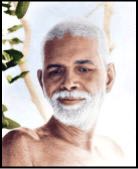
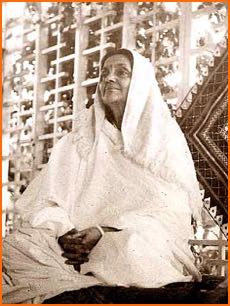
"Always prefer cash over credit." - Rumi

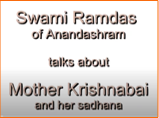
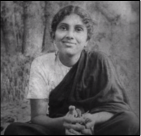
"We are asked to resign ourselves to the will of God.
There is nothing but the power of God active in nature,
active in ourselves.
By surrendering ourselves to the Divine power and Will
we will release within us that
Supreme Bliss and Peace that is
locked up."
Papa Ramdas
Want more of a rare glimpse of Bhagavan

Miraculous Image of the Mother of God at Golgotha
within the Church of the Holy Sepulcher.
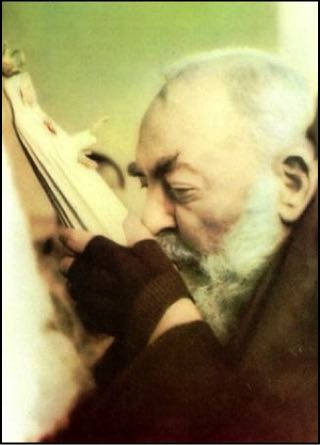

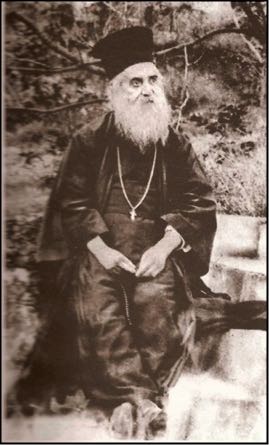
by St. Nectarios,
who received in a vision
from an angel of the Lord
this hymn,
where the angel declared:
“This is how we praise
the Most Holy Mother of God.”
Saint Nectarios
Saint Pio
An Aramaic translation of the Lord's Prayer Our Birth in Unity - d’bwashmaya
(KJV version: Our Father which art in heaven)
Evagrius Ponticus
Bytes of Wisdom From Bhagavan Ramana Maharshi
By Practice does Bhagavan mean Meditation?
Master: “This second view is held in the Devi Purana. According to it, Kali Herself has become Krishna; but what difference does it make? God is infinite, and infinite are the ways to find Him.”
M. remained silent with wonder for a few moments and then said: “Oh, now I understand. As you say, the important thing is to climb to the roof. Our goal will be achieved if we can accomplish it by following any of the means - a rope or a pole.”
Master: “It is through the grace of God that you have understood that. Without His grace doubt is never cleared up. The important thing is somehow to cultivate devotion to God and love for Him. What is the use of knowing many things? It is enough to cultivate love for God by following any of the paths. When you have this love, you are sure to attain God. Afterwards, if it is necessary, God will explain everything to you and tell you about the other paths as well. It is enough for you to develop love for God. You have no need of many opinions and discussions. You have come to the orchard to eat mangoes. Enjoy them to your heart’s content. You don’t need to count the branches and leaves on the trees. It is wise to follow the attitude of Hanuman: ‘I do not know the day of the week, the phase of the moon, or the position of the stars; I only contemplate Rama.’”
"A devotee can know everything when God's grace descends on him. If you but realize Him, you will be able to know all about Him. You should somehow meet the master of the house and become acquainted with him; then he himself will tell you how many houses he owns and all about his gardens and government securities."
Devotee: "How does one receive the grace of God?"
Master: "Constantly you have to chant the name and glories of God and give up worldly thoughts as much as you can. With the greatest effort you may try to bring water into your field for your crops, but it may all leak out through holes in the ridges. Then all your efforts to bring water by digging a canal will be futile."
"You will feel restless for God when your heart becomes pure and your mind free from attachment to the things of the world. Then alone will your prayer reach God. A telegraph wire cannot carry messages if it has a break or some other defect."
"One must not cherish any desire whatever. The devotion of a man who has any desire is selfish. But desireless devotion is love for its own sake. You may love me or not, but I love You. This is love for its own sake.”
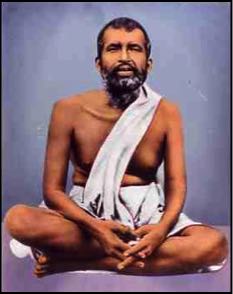
From the Gospel of Sri Ramakrishna
Grace of God Alone Clears up All Doubt
Love of God for its Own Sake

Though it is true that the path of bhakti (devotion) does not suit the temperament of all spiritual aspirants, it is undeniable that thinking of God, thinking of the “feet of the Lord”, does attract His grace. Whether devotion is achieved through bhakti or jnana, when the grace of God dawns upon us, our devotion deepens into love of Him. The love of God is the key that opens for us all knowledge, peace and purity.
This key is the keen and lively awareness and our patient endurance, while waiting on the Lord, which we have developed by persistently weathering out the storms of thought that mercilessly attempted to turn our attention outwards.*
____________
* Practical Sadhana, from the Teaching of Sri Ramana Maharshi. Page 83.
“Sri Bhagavan spoke and wrote most about the vichara or Self-enquiry,
and therefore the opinion arose that He prescribed only jnana-marga, the Path of Knowledge, which most people find too sheer in this age.
But in fact He was universal and provided guidance for every temperament,
by the path of Devotion no less than of Knowledge.
Love and devotion to Him are a bridge across the abyss to salvation.
He had many devotees for whom he prescribed no other path.”
(Ramana Maharshi and the Path of Self-Knowledge, Arthur Osborne, page 174.)
"Love and devotion to Him are a bridge across the abyss to salvation."

"Be anchored in fearlessness. What is worldly life but fear!
When you live in the grip of fear, must you not be afraid? It is futile to expect fearlessness there.
That you may be delivered from all sorrow you should endeavour to let God be your one and only support."
Sri Anandamayi Ma in Matri Vani
Devotee: "If one realised the Self and acted up to it in the West, one would be locked up in a lunatic asylum."
Maharshi: "You will be locking yourself in. Because the world is mad, it considers you mad.
Where is the lunatic asylum if it is not within. You will not be in it, but it will be in you.
Uncertainties, doubts and fears are natural to everyone until the Self is realised.
They are inseparable from the ego, rather they are the ego."
Sri Ramana Maharshi in Talks #612
"Look, in order to pluck a rose one has to put one’s hand into the midst of thorns.
But if the rose is a person’s aim and he has a keen desire to pluck it, he will not refrain from doing so for fear of being pricked.
Moreover, the Great Mother arranges whatever is necessary for each one.
She certainly knows the real need of every individual.
If one has at least this much faith, there is no reason at all to feel fear and distress...
Sustain the flow of God’s Name and no fear of any kind can exist is His Presence."
Sri Anandamayi Ma
Love of God Annihilates Fear
A young man from Colombo, Ceylon, said to Bhagavan: J. Krishnamurthi teaches the method of effortless and choiceless awareness as distinct from that of deliberate concentration. Would Sri Bhagavan be pleased to explain how best to practise meditation and what form the object of meditation should take?
B.: Effortless and choiceless awareness is our real nature. If we can attain that state and abide in it, that is all right. But one cannot reach it without effort, the effort of deliberate meditation. All the age-old vasanas (inherent tendencies) turn the mind outwards to external objects. All such thoughts have to be given up and the mind turned inwards and that, for most people, requires effort. Of course, every teacher and every book tells the aspirant to keep quiet, but it is not easy to do so. That is why all this effort is necessary. Even if we find somebody who has achieved this supreme state of stillness, you may take it that the necessary effort had already been made in a previous life. So effortless and choiceless awareness is attained only after deliberate meditation. That meditation can take whatever form most appeals to you. See what helps you to keep out all other thoughts and adopt that for your meditation.
In this connection Bhagavan quoted some verses from the great Tamil poet and saint, Thayumanavar, the gist of which is as follows: Bliss will ensue if you keep still, but however much you tell your mind this truth, it will not keep still. It is the mind that tells the mind to be still in order for it to attain bliss, but it will not do it. Though all the scriptures have said it and though we hear it daily from the great ones and even from our Guru, we are never quiet but stray into the world of Maya (illusion) and sense objects. That is why conscious, deliberate effort is needed to attain that effortless state of stillness.
Indeed, until the supreme, effortless state is attained, it is impossible for a man not to make effort. His own nature compels him to, just as Sri Krishna in the Bhagavad Gita told Arjuna that his own nature would compel him to fight.
D.: I want to be further enlightened. Should I try to make no effort at all?
B.: Now it is impossible for you to be without effort. When you go deeper, it is impossible for you to make effort.
D.: What is the difference between meditation and samadhi or absorption in the Self?
B.: Meditation is initiated and sustained by a conscious effort of the mind. When such effort entirely subsides, it is called samadhi.
B.: If you can keep still without engaging in any other pursuits, well and good. But if that cannot be done, what is the use of remaining inactive only with regard to realisation? So long as you are obliged to be active, do not give up the attempt to realize the Self."
"Meditation is a fight. As soon as you begin meditation, other thoughts will crowd together, gather force and try to overwhelm the single thought to which you try to hold. This thought must gradually gain strength by repeated practice. When it has grown strong, the other thoughts will be put to flight. This is the battle always going on in meditation.
So long as the ego lasts, effort is necessary. When the ego ceases to exist, actions become spontaneous.
No one succeeds without effort. Mind control is not your birthright. The few who succeed owe their success to their perseverance."
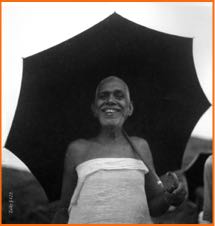
Meditation is a Fight!
"No one succeeds without effort. Mind control is not your birthright. The few who succeed owe their success to their perseverance" Sri Ramana Maharshi
Bhagavan: "So effortless and choiceless awareness is attained only after deliberate meditation. That meditation can take whatever form most appeals to you. See what helps you to keep out all other thoughts and adopt that for your meditation."
Devotee: It is said that only those who are chosen for Self- realisation obtain it. That is rather discouraging.
Bhagavan: That only means that we cannot attain realisation of the Self by our own mind, unaided by God’s grace. The Teachings of Ramana Maharshi in His own Words by Arthur Osborne pp.64-66
As St. Therese of Lisieux was embracing her final illness, the infirmarian found her awake, gazing toward Heaven.
"What are you doing? You ought to be trying to sleep." "I can't, Sister, I am suffering too much for that, so I pray."
"What do you say to Jesus?"
"Nothing, I just love Him."
At half past two on September 30, she told Mother Agnes,
“The chalice, Mother, is full to overflowing.
I could not have believed one could bear so much
and can explain it only by my great desire to save souls.
Thy will be done, My God, but have mercy on me;
sweet Virgin Mary, aid me.”
The Story of a Soul
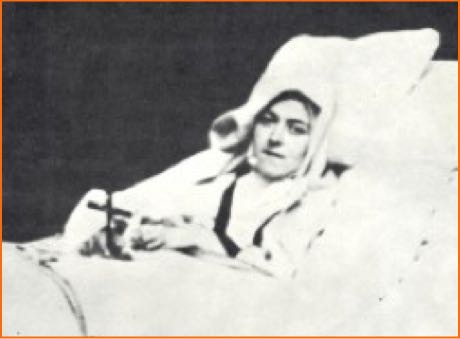
"Love Alone Counts"



"O Sweet Virgin Mary"
"Pashupati (smiling): Everything will continue as long as the Divine Mother will keep it going.
Sri Ramakrishna: That is true. But it is good to keep one's mind on God. It is not good to forget Him.
Nanda Bose: How can our mind turn to Him?
Sri Ramakrishna: It happens if He is gracious.
Nanda Bose: But where is His grace? Has He the power to bestow it?
Sri Ramakrishna (smiling): I see. You hold the view of the pundits. A person reaps results according to his actions. Give that up! Karma is destroyed if one takes refuge in God. I prayed to the Divine Mother with flowers in my hand. "Mother! Here is your sin and here is your virtue. I do not want anything. Please give me pure devotion.
Mother! Here is your good and here is your bad. I do not want either good or bad. Please give me pure devotion.
Mother! Here is your dharma (laws) and here is your adharma (transgression). I do not want any of them, laws or transgressions. Please give me pure devotion. Mother! Here is your knowledge and here is your ignorance.
I do not want either knowledge or ignorance. Please give me pure devotion.
Mother! Here is your purity and here is your impurity. Please give me pure devotion."
From The Gospel of Sri Ramakrishna on The Love of God
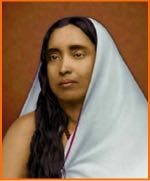
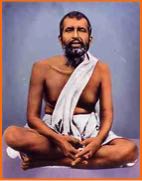
”Prayer is an essential part of the practice of religion; its power is irresistible; prayer reveals the life of human beings.
All the thoughts that arise in your heart should be offered to God.
Pray for His Grace with all earnestness and in a spirit of self-surrender.”
Just at that time I was reading in the news paper that before Lord Irwin came out to India as Viceroy and Governor-General, he asked his father’s opinion. The latter replied,—”Don’t worry about the outcome of events; we have no control over them. Pray to God and you may get some glimpse of the future.” Both father and son went to a church to pray. While returning from there, the father said, “You will have to go to India.” The son confirmed, “I also feel the same.”
When Mother heard it, She said,—”This is a good instance of the efficacy of prayer. But one must have deep faith like a child.
By constant practice the foundation of faith becomes strong; when pure faith takes root in the mind, sincere prayer issues forth from the soul. Through devotion the real spirit of prayer awakens in one’s soul, when the Divine Grace manifests itself in the desired results.”
On another occasion Mother said,—”When you talk of Divine Grace it implies that something descends on man without any intelligible cause. At its own time it comes of its own volition. Your find a child forgetting his mother when deeply absorbed in his play; but the mother, out of her own motherly love, bends down over him and takes him on her lap.
The Divine Grace blesses a man just like that.
A mother’s affection reveals itself before the child has time to think of her. You will certainly say that blessings in the shape of Divine Grace are the result of one’s good in previous births. From one standpoint this may be true, but from a different view-point one may say, that as God is absolutely free from all chains of cause and effect, one must not enquire about His motives; though such search for reasons often disturbs us, His mercy descends on all beings evenly. But when one develops a higher vision, one begins to feel the Divine Touch. Have something to rely on. Try to be in vital contact with it and you will find the free flow of His blessings upon your soul, just as a bucketful of water comes out of a well only when the rope to which the bucket is tied is being pulled.”
- Sri Anandamayi Ma - Mother As Revealed to Me - by Bhaiji
Towards the middle of 1931, while walking in the Ramna fields, Mother Anandamayi said:


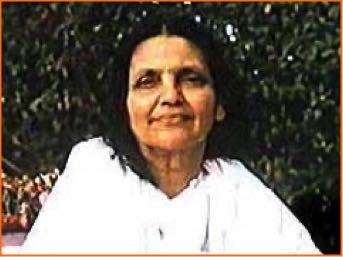
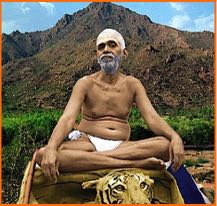
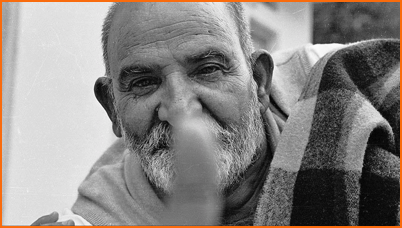
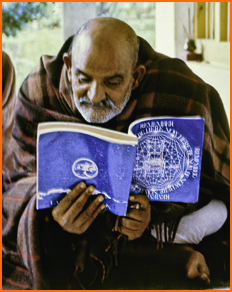
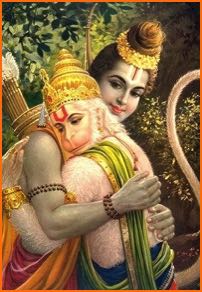
"You say: a person reaps results according to his actions. Give that up! Karma is destroyed if one takes refuge in God. I prayed to the Divine Mother with flowers in my hand. "Mother! Here is your sin and here is your virtue. I do not want anything.
Please give me pure devotion." Sri Ramakrishna
"You know before the Gita is read the book has to be worshipped. By “book”, His words and their import are meant.
As you continue to practice day after day, you will gradually reach a stage when absolute reliance on God will be your final achievement. There is nothing higher than that. This body tells you again: read the Gita daily and do some spiritual exercise, you will find answers to your queries revealing themselves in your mind.
If your desire to know Him is sincere and earnest and comes directly from the heart,
the solution must come. It is inevitable." Sri Anandamayi Ma
A rare interview with the personal attendant of Saint Pio who was with him, day and night, for the last years of his earthy life.
During the recording, Fr. Alessio recounts many miracles and wonderful stories about this glorious Saint of God never before heard.

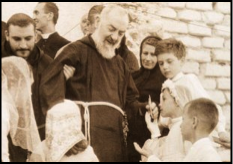
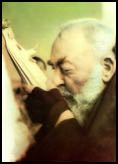

The Lord bless thee and keep thee.
May He show His face to thee and have mercy on thee.
May He turn His countenance to thee and give thee peace.
The Final words and Blessing of Saint Francis to this world


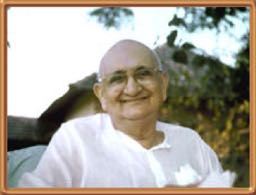
Papa Ramdas on Prayer and Remembrance of God
Papa Ramdas, in his own recorded words, reveals how Prayer and Remembrance of God's Holy Name (Japa) are the mainstay for the revelation of His Presence within and without, and the end of our seperation from Him.
Papa Ramdas says that what we need is Grace, through which we can:
"Seek ye first the Kingdom of God,
and then all things will be added unto you."
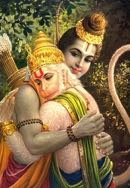
Om Sri Ram Jai Ram Jai Jai Ram mantra sung by Prem, a blood relative of Papa Ramdas
Papa Ramdas on Prayer and Japa
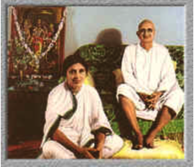
A Timeless Moment with Sri Anandamayi Ma
from "Mother As Revealed to Me," from Bhaiji"s Matri Darshan
I have heard from Mother’s lips that when all the thoughts of the devotee flow in one stream towards God, all the sense objects come under its influence. At that stage even the fall of a leaf from a tree creates ripples in the field of his consciousness. During the earlier stages of Mother’s life whatever happened in the outside world found response in Her nature spontaneously.
After Her deep trance as soon as Mother recovered Her normal serenity, many yogic activities manifested themselves automatically; at that time one could hear some indistinct humming sound emanating from Her. A little later rumbling notes like the surging of sea-waves lashed by a storm followed; thereafter an uninterrupted, supremely melodious flow of divine truths emerged from Her lips in the shape of numerous Sanskrit hymns. It seemed that from the eternal sky Divine truths were taking shape in sound symbols through Mother’s speech. Such flawless pronunciation, such free flow of melody touching the inmost core of the listeners, received added charm from the Divine radiance of Her face. Even learned Vedic scholars could hardly have acquired Her free and easy mode of expression in spite of their best training and practice.
(Enter here to read the entire article on Sri Ma)
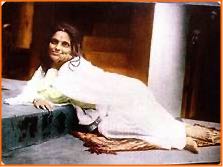
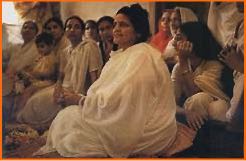
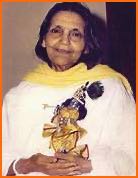

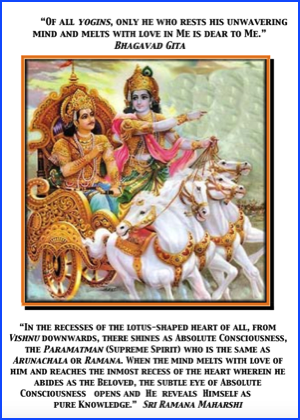
The idea is this; if you want to catch something that is vast and infinite, you should take a finite vessel, a limited vessel. If you take an unlimited thing, you simply will not catch it. So when you are trying to grasp the Lord who is vast and infinite, you require a vessel that is limited by the number of words and style of its pronunciation. It is for this reason that poetry is used. And not only poetry, the meter must be sung, for it is a 'Gita'.
And finally, one will be told what they will get out of it. One will become Srimaan; you will become full of Lakshmi. You will possess all eight qualities of Astha Lakshmi. Therefore, the Lord is saying that if one comprehends in full, and takes the directions into practice, finally Moksha Lakshmi will be theirs. You will be bestowed with that Grace and become Srimad. (Swami Shantananda Puri from The Bhagavad Gita Sara - the Teachings of Sri Ramana Maharshi)

“Realization of the Absolute is not a talk, is not a play. It is the most difficult and the hardest of all tasks. It demands the price of one's very self. Will you really and willingly pay it? It demands your ego.
It demands your very being as the cost for Self-realization.
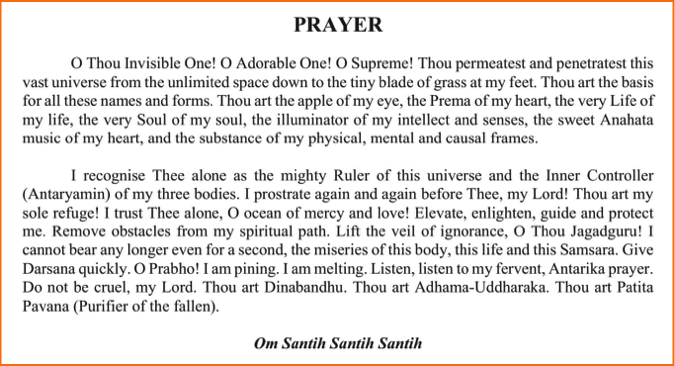
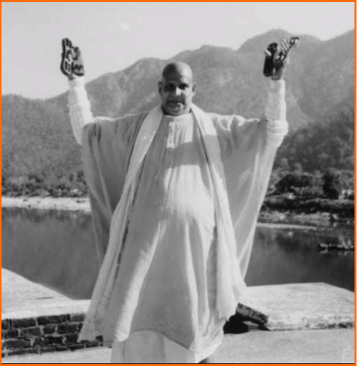
This Divine Prayerful Embrace and Earning of Our Lord is by GuruDev Swami Sivananda.
It is the invocation from his foundational book, which can be freely viewed and downloaded here:
"The Rugged Path"
A personal letter from Swami Sivananda Saraswati
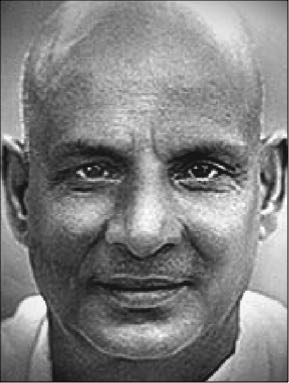
Swami Sivananda Saraswati
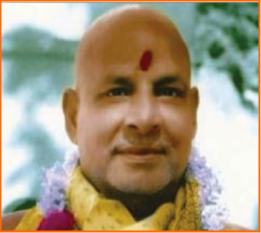
"Nothing that is worthwhile is to be achieved without undergoing a corresponding amount of pain and suffering. No enduring ideal can be attained without tire and sweat. The seed splits and perishes to put forth the plant. The flower lays its life to give place to the sweet fruit. It is in the furnace that gold emerges from the ore. Even so, the price of sainthood is to be paid in the interim period of utter loneliness, privation, and struggle which the really aspiring soul passes through. Every soul on the path of God-realization harbours no illusions about the true nature of the spiritual path. There is absolutely no royal road in spirituality.
"Adversity is a divine blessing in disguise. Adversity develops the power of endurance and will-force. Adversity develops fortitude and forbearance. All the Prophets, Saints, Fakirs, Bhaktas and the Yogins of yore had to struggle hard against adverse circumstances. The Almighty Lord puts His devotees under severe tests and rigorous trials. Every soul on earth is being tested by God for his sincerity and patience. He puts the aspirants into various kinds of troubles. He will make man utterly hopeless and helpless and watch and see whether one has the real devotion for Him or not in such straitened circumstances. We cannot say exactly what form these trials will take. But the sincere devotee is never afraid of such kind of tests....."
Enter here to read all of Swami Sivananda's "The Rugged Path"

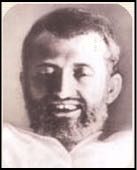

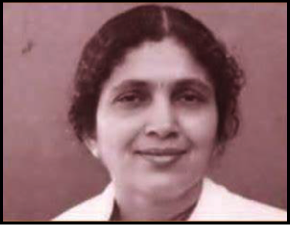
The Lord, Who is in all things, Is NOT in all thoughts!
"Of the strong, I am the strength devoid of desire and attachment, and in (all) beings,
I am the desire unopposed to Dharma, O Arjuna!" Bhagavad Gita 7:11
"I am that strength which is necessary for the bare sustenance of the body.
I am NOT the strength which generates desire and attachment for sensual objects
as in the case of worldly-minded persons." Swami Sivananda Saraswati Commentary
This most important verse within the Gita, is also to many the most overlooked and disregarded. For those who fall into this category, the reason is obvious. And their anger when contradicted is also most telling.
In our "modern" times, the fast-food approach to spirituality and religion is a most sought for commodity. This mind-set, technically referred to as Neo-Advaita, is in traditional scripture referred to as pramada - spiritual death (spiritual degradation without concern for the consequences). Although the Gita's fundamental philosophy declares that the Atman does not ever die, the human capacity to reveal and awaken the consciousness of the Atman can be crippled unto death.
The ancient Saintly King Bartruhari, who became an enlightened Sage, used the word pramada in the correct spiritual sense indicated by the Sage Sunat Sujata. He proclaimed:
“Peetva mohamayeem pramada madiram unmatta bhootam jagat”
“This world (its inhabitants therein) has become mad after having drunk the wine of negligence (pramada: laxity towards the spiritual goal), which being of the form of moha (delusion),
has overwhelming power to delude you.” Mahabharata 5.41-42.
The Sage Sanat Sujata is indicating that the presence of pramada brings about a spiritual death. For the spiritual madness that at first manifests as a fever of willful and angry indifference to the consequences of inattention to and negligence of God, is rendered deadly when it becomes habitual. This madness and anger literally destroys our faculty of discrimination, which before our “disease of pramada” was our guiding light on the path to Godliness.
Enter here to view this entire article
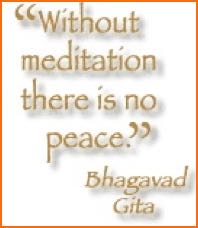
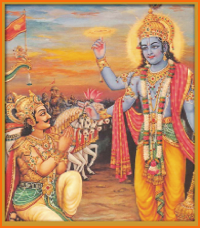

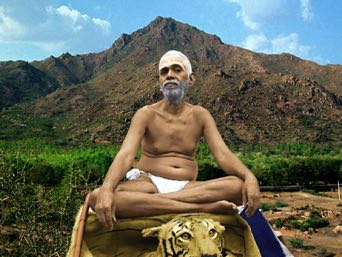

Guided Meditation
Using the traditional method of watching the breath, also includes the practice of linking the movement of the breath with the sacred mantra OM,
(or chant Soham, Amen or as you wish, any Name of God)
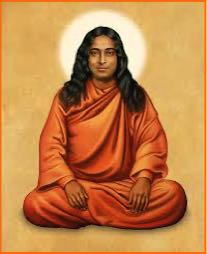
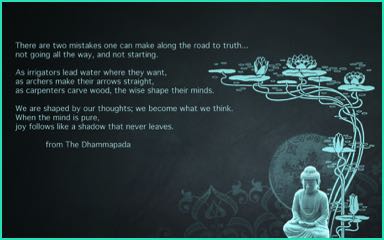
Sri Ramana on Spiritual Effort
Devotee: “Can the ego, which is in bondage as the mind, become the Divine Self simply because it has once glimpsed that it is the Self? Is this not impossible without the destruction of the mind? Can a beggar become a king by simply visiting a king a declaring himself one?
Maharshi: “Realization takes time to steady itself. The Self is certainly within the experience of everyone but not in the way people imagine. One can only say that it is as it is... Owing to the fluctuation of the vasanas (inherent qualities). Realization takes time to steady itself. Spasmodic Realization is not enough to prevent rebirth, but it cannot become permanent as long as there are vasanas... But if this is to be established further effort is necessary.” The Teachings of Ramana Maharshi, p. 177.
But even if effort is necessary, why a guru, some ask? Once one grants that the Sages knew what they were talking about when they said spiritual attainment is an arduous path beset with dangers, it should be obvious that it is safer to be guided on it by one who has gone before and knows the way. That is one explanation; another is that the guru is a person of power.
Grace flows through him to strengthen and support his followers. This can hold true for the simple guide or teacher to the highest jagat guru (world teacher). The prerequisite for both is that they know the way from traveling on it, never by just talking about it. Bhagavan Ramana was no exception. The Maharshi firmly declared to one who said that he never did sadhana or had a guru, “How do you know that I did not have a guru and did great effort, whether in this life or in one previous?”
Bhagavan said that in the final sense “God and Guru are one.” This is not said to glorify and enthrone a human guru as a God. But more to firmly reiterate that the work at hand is beyond human capacity. To demonstrate this Sri Sarada Devi said, “The power of the Guru enters into the disciple and the power of the disciple enters into the Guru. That is why when I initiate and accept the sins of the disciple I fall sick. It is extremely difficult to be a Guru. But, my child, I was born for this purpose. If I do not accept others’ sins and sorrows and do not digest them who else will?” (Some of the above is paraphrased from a writing of Arthur Osborne).
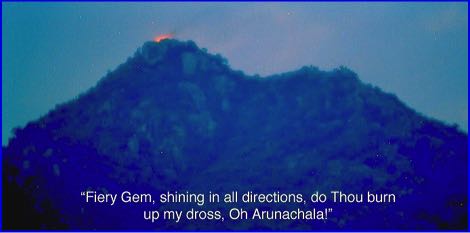
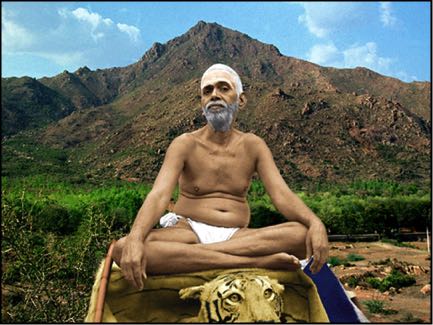
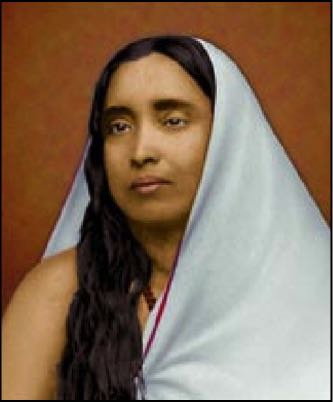
[from Bytes of Wisdom, with rare archival photos of Bhagavan Sri Ramana]
Certainly!
4th October, 1938 - Talk #527
A group of respectable Coorg ladies was in the hall. One of them asked:
I have received a mantra. People frighten me saying that it may have unforeseen results if repeated. It is only Pranava. So I seek advice. May I repeat it? I have considerable faith in it.
Maharshi: Certainly, it should be repeated with faith.
D.: Will it do by itself? Or can you kindly give me any further instructions?
M.: The object of mantra japa is to realize that the same japa is already going on in oneself even without effort. The oral japa becomes mental and the mental japa finally reveals itself as being eternal. That mantra is the person’s real nature. That is also the state of realization.
D.: Can the bliss of samadhi be gained thus?
M.: The japa becomes mental and finally reveals itself as the Self. That is samadhi.
In the above quote Sri Ramana Maharshi exemplifies the eternal truths echoed by the ancient Seers of India. Further discussion of the meaning and intent of the Maharshi might only “muddy the waters” of what remains to this day as crystal clear.
His words might be distilled down to the essential, for those who still find his words confounding.
Devotee: What should one do spiritual practice for?
Maharshi: Thought of God, certainly.
Devotee: Should I have faith in such practice?
Maharshi: Certainly!
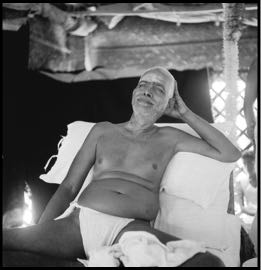

"Remember
God's Name, nothing else matters!"
Sri Ma Anandamayi
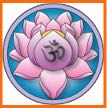
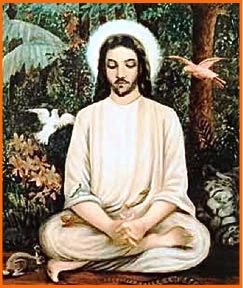
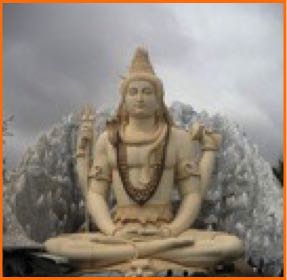
The Science of Japam
Essential lectures on why and how to Remember God's Name
THE MEDITATION ROOM
The meditation room should be regarded as a temple of God. Talks of profane nature should never be indulged in the room. No vicious thoughts of rancorous jealousy, avarice are to be entertained there. Admittance should ever be sought in it with a pious and reverent mind. For, what we do, what we think and what we speak of leave their impressions on the ether of the room and, if no care is taken to avoid them, they will exert their influence on the aspirant’s mind and, rendering his mind perverse and restive, make him incapable of attending to the devotion. The words uttered, the thoughts cherished, the deeds done are not lost; they are always reflected on the subtle layers of ether encircling the room where they are done and affect the mind invariably. As much as possible effort should be made to overcome them. This is to be done for a few months only; when the habit is changed, everything will be all right.
HOW TO MEDITATE
Sit in a lonely place on Padma, Siddha or Sukha Asana. Free yourself from all passions, emotions and impulses. Subjugate the senses. Withdraw the mind from objects. Now the mind will be calm, one-pointed, pure and subtle. With the help of this trained instrument, disciplined mind, contemplate on that one Infinite Self. Do not think of anything else. Do not allow any worldly thought to enter the mind. Do not allow the mind to think of any physical or mental enjoyment. When it indulges in these thoughts, give it a good hammering. Then it will move towards God. Just as the Ganga flows continuously towards the sea, thoughts of God should flow continuously towards the Lord. Just as oil, when poured from one vessel to another, flows in an unbroken, continuous stream, just as the harmonious sound produced from the ringing of bells falls upon the ear in a continuous stream, so also the mind should ‘flow’ towards God in one continuous stream. There must be a continuous divine Vritti-Pravaha, Svajatiya-Vritti-Pravaha, from the Sattvic mind towards God through continuous Sadhana.
Click on any heading below to access it's contents
The Science of Japam
Essential lectures on why and how to Remember God's Name
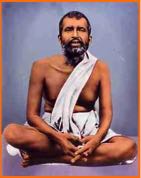
This gem of Spiritual Guidance, if alone adhered to in this Kali Yuga, will certainly bring one to the most sought for Realization!
{Enter above to find out!!}
These Divinely
inspired talks will purify your mind!



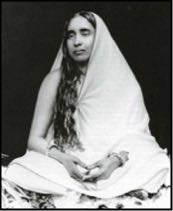
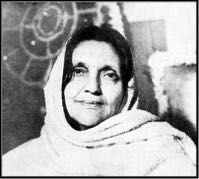
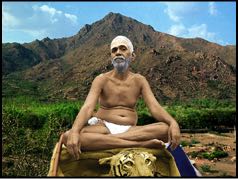
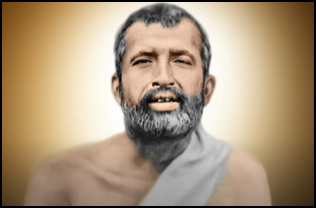
From the Gospel of Sri Ramakrishna
"The body is really impermanent. When my arm was broken I said to the Mother,
"Mother, it hurts me very much." At once She revealed to me a carriage and its driver.
Here and there a few screws were loose. The carriage moved as the driver directed it.
It had no power of its own." The Master to Trailokya (smiling) p.397.
Sri Ramakrishna said to Ishan: "Live in the world like an ant. The world contains a mixture of truth and untruth, sugar and sand. Be an ant and take the sugar. Again, the world is a mixture of milk and water, the bliss of God-Consciousness and the pleasure of sense-enjoyment. Be a swan and drink the milk, leaving the water aside.
Live in the world like a waterfowl. The water clings to the bird, but the bird shakes it off. Live in the world like a mudfish. The fish lives in the mud, but its skin is always bright and shiny.
The world is indeed a mixture of truth and make-believe. Discard the make-believe, and take the truth." Gospel Ch. 25, p.472
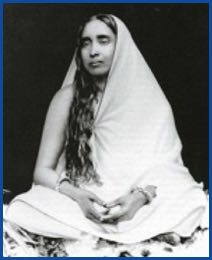
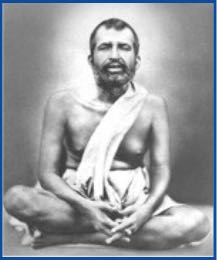
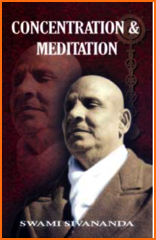
The most enlightened understanding of the Supreme Predicament
we all find ourselves within:
"Man consists of Atman, mind and body. The Atman has two aspects, changeless and changing.
The latter is called the world and the former God. World also is nothing but God in manifestation.
God in movement is the world. Not that the world does not exist, it has a relative existence.
Atman is all-pervading, all blissful, all-powerful, all-knowing, eternally perfect and pure.
It assumes these names and forms called the world (Nama Rupa Jagat) of its own free will.
There is no desire, because there is no outside object. This will is called Shakti. It is Atman in action.
In Nirguna Atman this Shakti is static. In Saguna, it is dynamic.
Atman has no desire, because it is perfect, and because there is nothing which is objective to the Atman.
Desire implies attraction, which presupposes imperfection.
It is the very negation of will which is decision for action from within.
The Atman wills and the universe comes into being. The will of the Atman upholds and governs the universe.
Human beings are driven hither and thither by egoism, desires and fears due to identification with the
limiting adjunct of mind and body. This idea of limitation is called egoism."
~~ from Concentration and Meditation by Swami Sivananda, page 186
And yet another Supreme Predicament ~~ Playing Hide and Seek with God (life after life!)
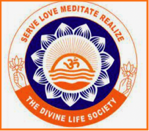


The Remedy to our predicament!
It isn't only meditation that I emphasize. Meditation plus keeping your mind on God during activity is what is necessary.
Half the battle will be won by meditation, for the soul power that you bring out during meditation will influence your thoughts and behavior during activity.
When you meditate deeply, that gives substantiation to your spiritual thoughts. The longer and deeper you meditate on a regular basis, the more you will find that there is no difference between work and meditation. That is to say, whether you are working or meditating, you remain immersed in the Divine consciousness of the blissful Spirit.
You no longer identify yourself with the activities and aches and pains of a mortal body; you realize you are pure Spirit.
Paramhansa Yogananda, Journey to Self-Realization
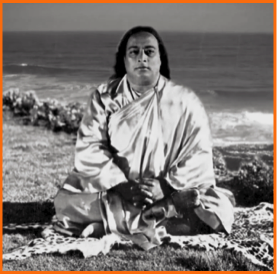
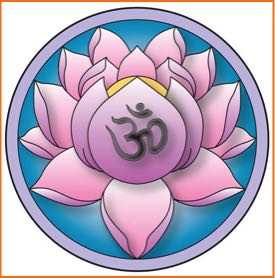
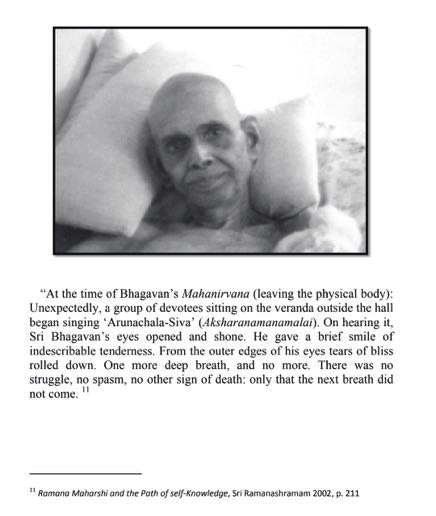

"Therefore I say, chant God's Name, and with it pray to Him that you may have love for Him"
Sri Ramakrishna
A thrilling Satsang on the Human incarnation of God
Living in the Light of Sri Ramakrishna
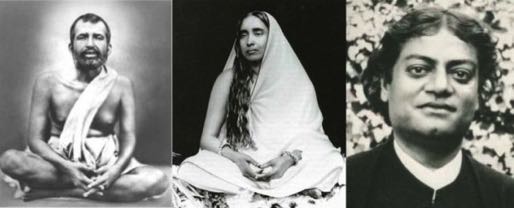
A Gift from Swami Sivananda and other Saints of India!
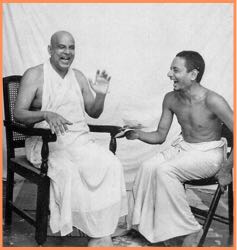
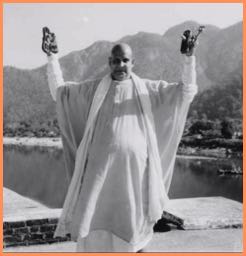
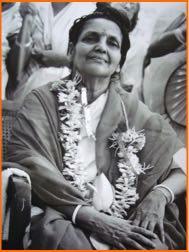
Letters from Arunachala
Over the past quarter century, there has been an increased interest in Bhagavan Sri Ramana Maharshi, his life and teachings as well as an explosion of Indian pilgrims particularly around the full moon, who come to be blessed by the sacred hill Arunachala.
These personal letters are the firsthand experiences of such a Journey toward Blessedness, our journey as well, from such a pilgrim who came and by the Grace of Bhagavan, endured through all this world can throw at us - "Seeking the One who wakes with the waking man, dreams with the dreamer, and sleeps the deep sleep of the dreamless sleeper. He who transcends these three states to become Himself. His true nature is pure consciousness."
Om Sri Ram Jai Ram Jai Jai Ram
"Your life is a current that started from an Eternal Source.
Make it flow in all its pristine purity
so that it may lighten the burden of the weak,
relieve the distress of the suffering,
elevate the hearts of the depressed."
Swami Ramdas
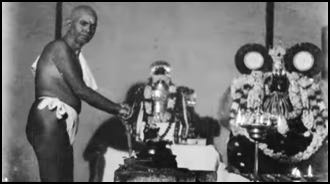
A rare interview with the personal attendant of Saint Pio who was with him, day and night, for the last years of his earthy life.
During the recording, Fr. Alessio recounts many miracles and wonderful stories about this glorious Saint of God never before heard.





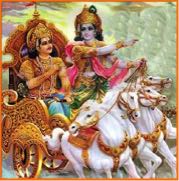
Enter above on Sri Ma Sarada Devi,
.Sri Ramana Maharshi and
Sri Anandamayi Ma .to discover how!

Devisuktam
Enter for the true meaning of the most ancient
Vedic Hymn to the Divine Mother of us all!
Enter above on your choice for words of grace.

Discover Grace filled words below for a Godward Life

